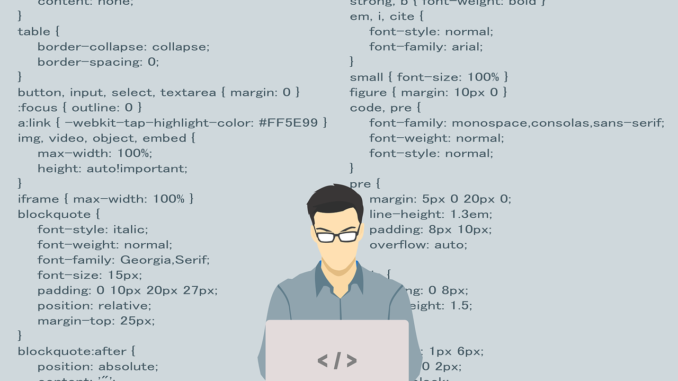
The world is seeing a colossal rise in digitization as more and more companies adopt a digital model. The global digital transformation industry is forecasted to grow from $469.8 billion in 2020 to $1,009.8 billion by 2025, according to Research&Markets. With this growth comes the demand for more developers.
Software developers are in the top 10 most in-demand tech industry jobs in 2021. If being a developer has always interested you, then now is the best time to start. But how do you exactly become one? First, let’s discuss the perks of building a career as a developer.
Why become a developer?
You don’t need a degree to become a developer. Yes, having a degree helps in starting your career, but it isn’t mandatory. Even better, everything you need to learn can be accessed over the internet. This means you don’t have to invest as much money in learning as you would if you get into university.
Moreover, developers often can work remotely since all of their work is done on a computer. Lastly, developers receive a high salary. The average yearly salary of a software engineer/ developer is $123,586 in the US.
Choose a programming language
Before you start studying, you must first choose a programming language to tackle. There are many programming languages, but your best bet would be choosing between Python, Java, and JavaScript.
Python is simple, and it’s the easiest programming language to learn, making it the perfect choice for beginners. Many startups are using Python as their backend stack, so those who know Python are guaranteed to have a wealth of employment opportunities.
Java is the better option for those whose goal is to work for large companies. It’s known for its stability and has been adopted by large enterprises. It’s a bit harder to learn than Python.
JavaScript is similar to Python in a way that startups commonly use it. However, Python is more “general purpose.” JavaScript is considered the “front-end” programming language, making it an excellent choice for those who want to focus on front-end web development.
Get a degree or join a boot camp
Yes, you can learn everything you need to become a developer by yourself, but it’s likely to take a lot of time. Unless you can get a scholarship, going to a university will be expensive, but it does have its benefits. Having a degree is guaranteed to give you an edge over your peers, and the theoretical knowledge you will earn will make you more versatile. When choosing a course program, enroll in computer science or any related field.
On the other hand, you can join a coding boot camp if you want to speed up your learning without burying yourself in student loans. They’re designed to get you job-ready in three months, and they’re significantly cheaper than university. Keep in mind that a boot camp focuses on the actual practice of programming, meaning you won’t get the theoretical knowledge you would get from a university.
Learn from a veteran
If you know someone, a friend, family, or acquaintance, who is an experienced developer, get them to mentor you. Having a tutor is not a substitute for attending a boot camp, but they can help you when you get stuck. A mentor can also push you to keep studying whenever you feel like slacking off. Best of all, they won’t cost you money, which is great considering that you’re probably not earning money at this point.
Learn how to read code
Being able to read other people’s code allows you to learn from the work of senior developers. If you can read others’ code, you can better understand how a specific program is working. You can learn to do this by visiting GitHub repositories and reading documentation.
Build a portfolio
Hands-on experience still beats studying. By working on projects, you don’t only get practical experience but also start building a portfolio. In addition, working on projects will expose you to people in the industry. This expands your network and can introduce you to a potential employer.
Apply for a job
You now have the skills, knowledge, experience, and a good number of projects under your belt. The next step is to apply as a developer. Apply for a job where you meet 80% or more of the requirements. Invest time in writing your resume, cover letter, and online profiles. Make sure they can catch the attention of HR managers. If you’re self-taught, emphasize how you can learn faster than your peers. If you’re from a university, highlight your academic feats.
Ace the interview
There is no be-all and end-all advice for interviews, and there are plenty of different techniques you can employ. However, it’s always good practice to know your CV or resume well. You also want to know the company you’re applying to. It’s a given, but make sure to be on time. Be polite but also be confident. After the interview (which hopefully went well), don’t forget to ask questions if you have any. Most of all, don’t be shy to follow up on the results.
Assuming everything went well, you are likely to get a job offer. But if you don’t get an offer, ask for feedback so you can do better next time.
The demand for developers will keep on increasing in the coming years. Many American companies are finding it difficult to find recruits locally, so they outsource developers from other countries. Mexico, India, and the Philippines have become the top destinations for outsourcing due to lower costs, the abundance of tech graduates, and a large English-speaking population. If you decide to take on the challenge of building a career as a developer, you can rest assured that it will be well worth it.







Leave a Reply